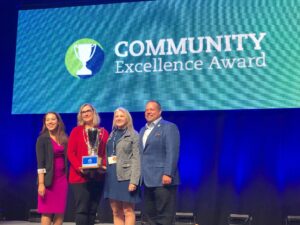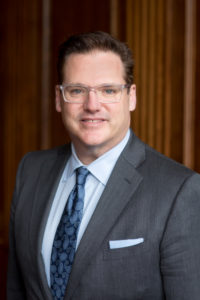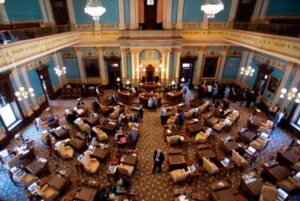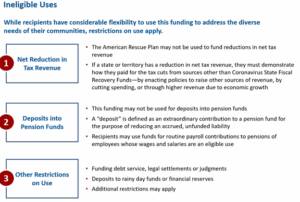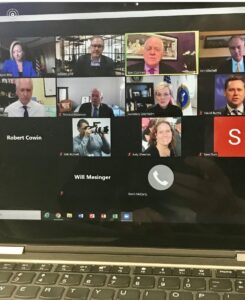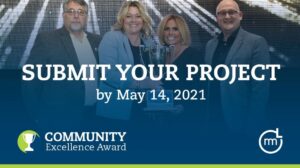Update: View excel spreadsheet detailing bridge appropriations.
The conference reports on Senate Bill 82 and House Bill 4400 were signed yesterday, one week after the Legislature sent the record-setting state spending plan for Fiscal Year 2021-22 to her desk. This budget, which takes effect October 1st, appropriates nearly $70 billion overall with nearly $12 billion from General Fund revenues. Additionally, the budget agreement includes another $2 billion in spending for the current FY20-21 fiscal year, mainly from available federal stimulus funds. While most of the revenue for this budget agreement comes from available state revenues, about $700 million of American Rescue Plan Act funds were appropriated to fund additional programs and grants between the current and coming fiscal year. Beyond this budget, the state still has nearly $5.8 billion in federal ARPA stimulus funds they have yet to appropriate, along with over $2 billion in General Fund balance they have available to spend. A string of supplemental budget appropriation bills are expected over the course of this fall that will focus these remaining funds into specific topics like water and sewer and economic development.
While the budget agreement represents a significant development from a relationship standpoint between the Governor and Legislature, there were a few areas of disagreement in the budget boilerplate language that the Governor called out in her transmittal letter to the House and Senate, accompanying her signature on the plan. While few spending lines appear to have been vetoed, the Governor did weigh in on approximately 40 different boilerplate directives that the Legislature had included in the overall budget. Many of the items she declared “unenforceable” were tied back to concerns about the language violating the separation of powers between the Executive and Legislative branches and issues of amendment by reference.
While the Governor did declare unenforceable a series of references to mask orders related to child care facilities and local public health department orders, she did not weigh in on language that was inserted in every departmental budget section related to prohibiting COVID-19 vaccination requirements. Language in the General Government budget, which controls spending by the Michigan Department of Treasury for items like revenue sharing (found in Section 225 on page 95 of the conference report) specifically states:
Sec. 225. (1) Any department, agency, board, commission, or public officer that receives funding under part 1 shall not:
(a) Require as a condition of accessing any facility or receiving services that an individual provide proof that he or she has received a COVID-19 vaccine except as provided by federal law or as a condition of receiving federal Medicare or Medicaid funding.
(b) Produce, develop, issue, or require a COVID-19 vaccine passport.
(c) Develop a database or make any existing database publicly available to access an individual’s COVID-19 vaccine status by any person, company, or governmental entity.
(d) Require as a condition of employment that an employee or official provide proof that he or she has received a COVID-19 vaccine. This subdivision does not apply to any hospital, congregate care facility, or other medical facility or any hospital, congregate care facility, or other medical facility operated by a local subdivision that receives federal Medicare or Medicaid funding.
(2) A department, agency, board, commission, or public officer may not subject any individual to any negative employment consequence, retaliation, or retribution because of that individual’s COVID-19 vaccine status.
(3) Subsection (1) does not prohibit any person, department, agency, board, commission, or public officer from transmitting proof of an individual’s COVID-19 vaccine status to any person, company, or governmental entity, so long as the individual provides affirmative consent.
(4) If a department, agency, board, commission, subdivision, or official or public officer is required to establish a vaccine policy due to a federal mandate, it must provide exemptions to any COVID-19 vaccine policy to the following individuals:
(a) An individual for whom a physician certifies that a COVID-19 vaccine is or may be detrimental to the individual’s health or is not appropriate.
(b) An individual who provides a written statement to the effect that the requirements of the COVID-19 vaccine policy cannot be met because of religious convictions or other consistently held objection to immunization.
(5) As used in this section, “public officer” means a person appointed by the governor or another executive department official or an elected or appointed official of this state or a political subdivision of this state.
The Governor’s transmittal letter interprets this language as providing “a roadmap for public employers to ensure their employees either receive the safe and effective COVID-19 vaccine or undergo regular testing to keep their co-workers safe. It also avoids any conflict with federal law, recognizing that federal authorities may issue vaccination requirements.” This last comment appears to be in reference to forthcoming US Department of Labor rules that would align with the President’s recent call for vaccination or testing requirements for large employers. This language is still being evaluated, especially in light of the potential costs related to implementing a stringent testing program at the local government level.
When reviewing the 964 page state operating budget document and the related 179 page House Fiscal Agency summary there are a number of key items of interest to municipalities and some significant victories for local government:
Overall, there is a $500 million deposit into the state’s Budget Stabilization Fund
Statutory Revenue Sharing will see a 2% ($5.2M) increase added into the overall base for cities, villages, and townships.
MML advocacy also helped to successfully restore $433,000 for more than 100 local units that were forced to return the federal CARES funding they received in August of 2020 as replacement for the state budget elimination of the August revenue sharing payment last year
Additionally in Treasury, the legislature approved the Governor’s recommendation for a $5M grant program to assist local governments with training and recruitment of first responders. $3M was included to increase funding for the Michigan Infrastructure Council and $16M was added to fund infrastructure enhancements for E-911 systems.
Key funding items in other state departments:
Environment, Great Lakes, and Energy –
- $15M for drinking water emergency assistance related to contamination response
- $14.5M PFAS contamination remediation for water systems
- $10M contaminated site clean up
- $10M lead service line replacement and drinking water safety improvements in the City of Benton Harbor
- $19M for public and private dam safety and emergency response grants
- While funding for the Governor’s MI Clean Water Plan was not included in this budget, it is expected that a larger water/sewer/storm water spending plan will be proposed from available ARPA funds this fall.
Labor and Economic Opportunity –
- $100M of ARP funds for Community Revitalization Program and Placemaking grants to local units (identified blight and historic rehab projects in downtowns and outdoor dining and social district investments)
- $1.5M increase in arts and culture grants funding
- $3.5M increase in the Rural Jobs & Capital Investment Fund
- $48M for 25 targeted local infrastructure grants across the state
- $147M for 175 distinct local “enhancement grants” in communities statewide
Dept of Technology, Management, & Budget –
Dept of Natural Resources –
- $7M of available federal funds for local recreation lands and facilities through Land & Water Conservation Fund payments
Michigan State Police –
- $45M of federal funds for disaster and emergency response activities
- $2M one-time increase to secondary road patrol grants
- $500,000 to provide de-escalation training for law enforcement officers
MI Dept of Transportation –
- $52.8M increase to the MTF for local road funding from full implementation of the $600M road plan income tax earmark
- $12.8M restoration of last year’s cuts to the Transportation Economic Development Fund
- $3M restoration of last year’s cuts to local bus transit operating support
- $5.6M increase to state rail programs
Beyond the funding for the coming fiscal year, over $2 billion dollars was added to the current year (FY21) budget
- $150M ARP deposit into the Unemployment Insurance Trust Fund
- $168M from GF and Federal funds into the Water State Revolving Funds to fund loan demand for local water pollution control facilities
- $121M of ARP funds for a Homeowners Assistance Fund within LEO that will support housing needs – includes utility payments and delinquent property taxes
- $36.3M of federal funding for Low Income Household Water Assistance support through DHHS
- A series of line items within MDOT from available December 2020 federal stimulus funds –
- $196M local bridge bundling program – will allow for repair/replacement of 100 local bridges across Michigan. View excel spreadsheet detailing bridge appropriations.
- $68M for Michigan’s 15 primary airports
- $2M for Michigan’s general aviation airports
- $65M for local road & bridge programs
- $55M for local/rural transit agencies
- $3.3M for the intercity bus program
With the signing of the budget, leaders will now turn their attention to appropriating the remaining American Rescue Plan dollars, available state General Fund revenues that continue to come in above revenue estimates, and any additional federal revenue that may result from the federal budget reconciliation process and/or the Infrastructure and Jobs Act discussion in Washington, DC. The League’s State & Federal Affairs team will be extremely active in these upcoming budget discussions, pushing areas of priority for League members, like housing, community development, and additional support for local budgets and services.
Chris Hackbarth is the League’s director of state & federal affairs. He can be reached at 517-908-0304 and chackbarth@mml.org.

